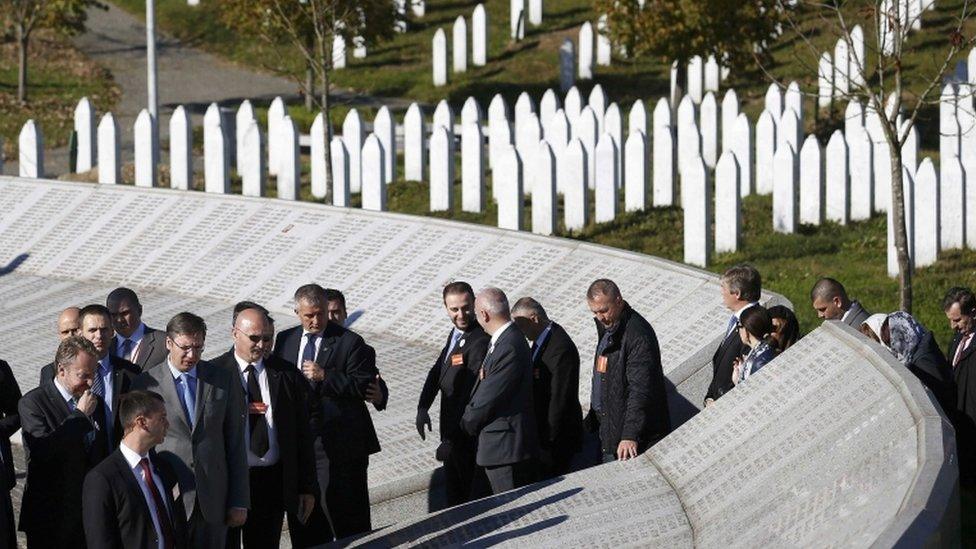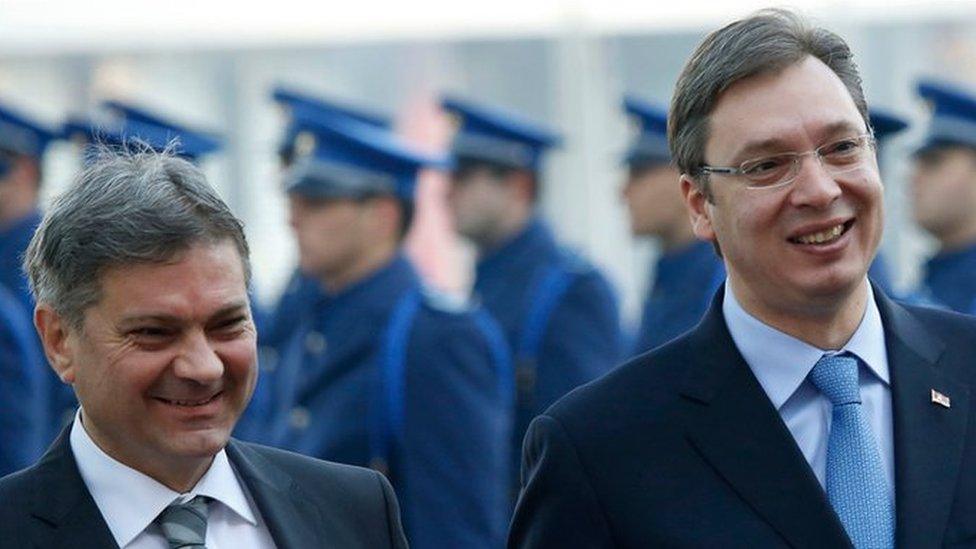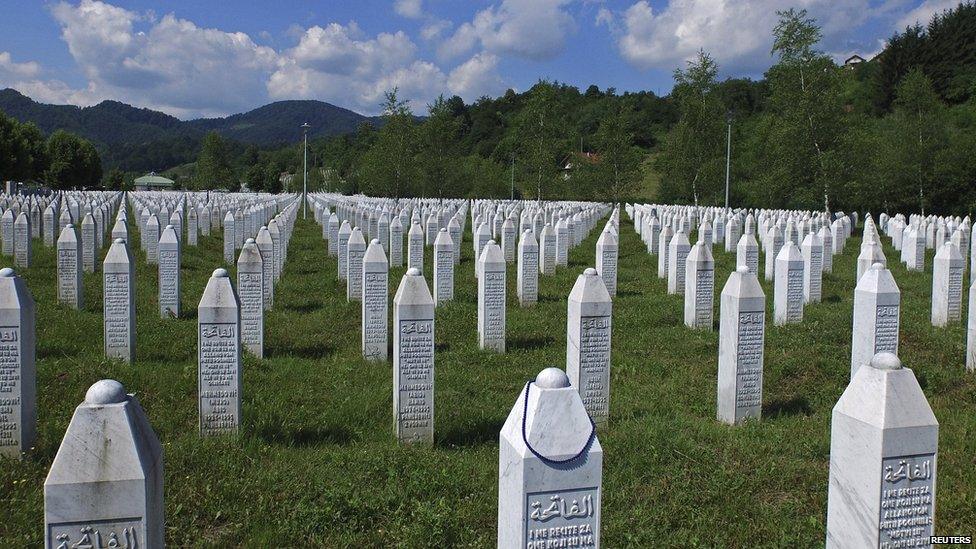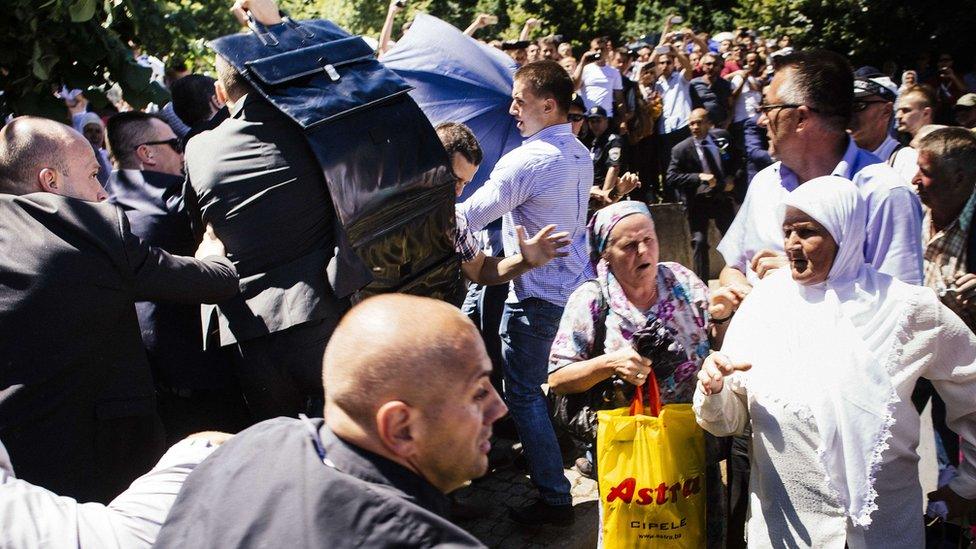Serbian PM Vucic returns to Srebrenica memorial after attack
- Published

Aleksandar Vucic (fourth left) is accompanied by Bosniak leader Bakir Izetbegovic at the memorial and cemetery for victims of the Srebrenica massacre
Serbia's Prime Minister Aleksandar Vucic has paid his respects to Muslim victims of the 1995 Srebrenica massacre, four months after being attacked by a stone-throwing mob there.
He laid a wreath of white roses at Srebrenica's memorial, alongside Bosniak leader Bakir Izetbegovic.
It was his first visit to the town since he was forced to flee in July.
About 8,000 Muslims were killed in Srebrenica by Bosnian Serb forces during the Bosnian war.
Security measures were tight around the memorial and cemetery, just outside Srebrenica, as Mr Vucic paid his respects on Wednesday.
Mr Vucic was also set to speak at an economic conference during his visit.
'Brave man'
Srebrenica's Muslim mayor, Camil Durakovic, who joined Mr Vucic at the memorial, said he respected him for returning to the town, according to Serbian media.
He said he was a "brave man" whose visit signified a more positive future for the town.
One of his colleagues told the Associated Press that Serbian Prime Minister Aleksandar Vucic was hit in the face by a stone and his glasses were broken
Mr Vucic fled a ceremony marking the 20th anniversary of the Srebrenica massacre on 11 July after people threw water bottles and stones at him.
Speaking in Belgrade afterwards, Mr Vucic said his glasses had been smashed in the incident but he was otherwise unhurt.
Ahead of his latest visit, he called for improved ties between Serbs and Muslims, and announced that Serbia would invest in development projects in Srebrenica.
The Serbian and Bosnian governments held their first joint session in Sarajevo on 4 November.
What happened at Srebrenica? Explained in under two minutes
The Bosnian War saw Bosnian Serb forces, backed by Serbia, fighting the Muslim-led Bosnian government.
In July 1995, thousands seeking shelter in what was supposed to be a UN refuge in Srebrenica were shot dead. It was Europe's worst atrocity since World War Two.
The ethnic Bosniaks (Bosnian Muslims) are descended from Bosnian Slavs who adopted Islam under Ottoman Turkish rule in the Middle Ages.
Mr Vucic is a former radical Serb nationalist who served under Serbian leader Slobodan Milosevic in the late 1990s.
He is now a pro-Western politician seeking to steer Serbia into the European Union.
His government managed to secure support from its ally Russia to veto a UN resolution calling the events in Srebrenica a genocide in July.
- Published4 November 2015

- Published8 July 2015

- Published11 July 2015
